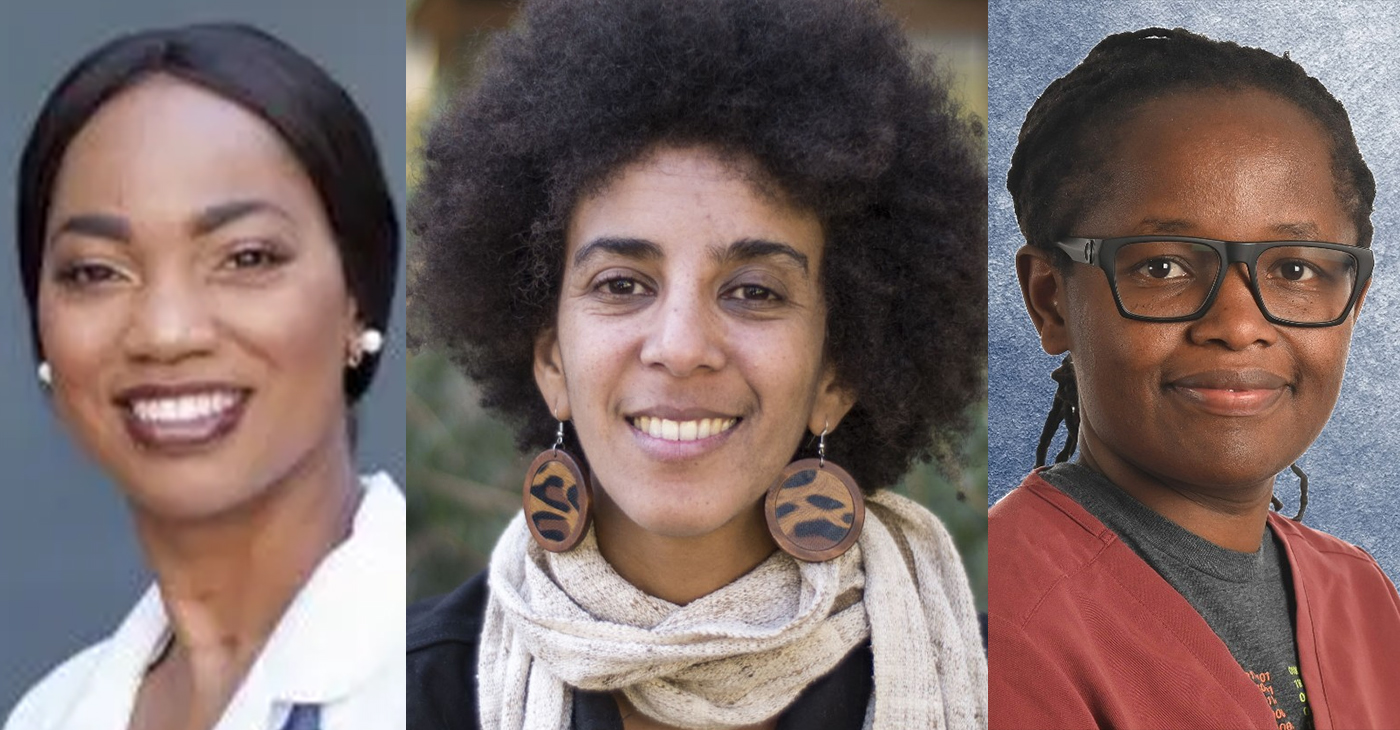Commentary
The Far-Right Political Playbook Is a Threat to Our Health, Our Schools, and Our Democracy
Right-wing media outlets and social media spread false information and conspiracy theories. Conservative activists and politicians opposed public health measures as a form of “tyranny.”

The New York Times recently reported that the public health system in the United States may be less prepared for the next pandemic than it was for the current one. Given everything we have been through, and everything we have learned, how can that be?
The answer is disturbing. Our public health system is being put at risk by the same right-wing disinformation tactics that are undermining our educational and election systems.
Right-wing media outlets and social media spread false information and conspiracy theories. Conservative activists and politicians opposed public health measures as a form of “tyranny.” Angry people have harassed and threatened public health officials, and politicians have passed more than 100 laws restricting their authority to take action to protect the public.
Those new laws, combined with chronic underfunding and staff burnout, are making us all more vulnerable to health threats in the future. So is the fact that extremism is being embraced by public officials, not just agitated activists.
The Times reported that one county sheriff in Washington state threatened to arrest any government official enforcing health restrictions that he thought were unconstitutional. New laws will make it harder for schools and hospitals to enforce vaccine requirements that have been in place for years.
We are seeing this destructive political dynamic play out in our schools and elections as well.
The opposition raging against public officials trying to protect our health care is the same opposition raging against teaching about systemic racism in our schools and feeding the “Big Lie” about a stolen 2020 election. It’s all coming from the same playbook.
All across the country, school board meetings have turned into angry mob scenes. Parents’ frustration over school closings and mask requirements has boiled over in some places, and it is being inflamed and exploited for political purposes.
To make matters worse, right-wing media and political groups have manufactured a panic about the supposed threat of “critical race theory” being taught in schools.
Critical race theory is an academic framework for understanding how systemic racism affects people’s lives. But right-wing activists, with a big boost from Fox News and Donald Trump, are getting parents riled up with claims that honestly teaching about the racism in our history and institutions is part of a Marxist plot to impose tyranny by making students hate America.
It sounds ridiculous, and it is. But the rising tide of threats against educators and school board members is no joke. Neither is a widespread campaign by right-wing activists to take over school boards and impose a whitewashed “patriotic education” on students. They are passing laws that will make it impossible to teach about racism in schools—even in some state colleges.
This is part of an ugly backlash against the Black Lives Matter movement and a reaction to the increasing diversity of our schools and communities.
Speaking of ugly backlash, the assault on voting rights continues. Trump supporters couldn’t handle the fact that he lost. They could not accept that their hero was defeated in part by increased turnout among Black voters in key states. Or that Black voters in Georgia and their allies took control of the Senate away from Republicans.
So, we see the same right-wing playbook in action. Spread lies and conspiracy theories to convince conservative and right-wing voters that their country and their freedom are being “stolen” from them. Launch attacks on the officials who oversee our elections. Undermine confidence in elections with fake “audits” and tell more lies about the outcome of those “audits.” Use the lies and anger to justify new laws that make it harder for people to vote.
Some Republican state legislators have given themselves the power to ignore voters altogether and declare their own winner if they don’t like the results.
We are seeing the fruits of social media outlets pushing people deeper into conspiracy theories and further from reality. We are witnessing the destruction of trust and community by powerful right-wing media figures who profit from inflaming fear and division.
These are all threats to our future as a peaceful, multiethnic, multiracial democratic society. And there’s no easy solution to overcoming these threats.
There’s a lot of hard work to do.
Exposing lies and telling the truth. Lifting up voices with moral authority to break through the deceptions. Organizing people of good will to get involved. And insisting that our friends and allies in positions of cultural, economic, and political power have the courage and commitment to defend our families, schools, communities, and democracy.
Arts and Culture
BOOK REVIEW: Love, Rita: An American Story of Sisterhood, Joy, Loss, and Legacy
When Bridgett M. Davis was in college, her sister Rita was diagnosed with lupus, a disease of the immune system that often left her constantly tired and sore. Davis was a bit unfazed, but sympathetic to Rita’s suffering and also annoyed that the disease sometimes came between them. By that time, they needed one another more than ever.

By Terri Schlichenmeyer
Author: Bridgett M. Davis, c.2025, Harper, $29.99, 367 Pages
Take care.
Do it because you want to stay well, upright, and away from illness. Eat right, swallow your vitamins and hydrate, keep good habits and hygiene, and cross your fingers. Take care as much as you can because, as in the new book, “Love, Rita” by Bridgett M. Davis, your well-being is sometimes out of your hands.
It was a family story told often: when Davis was born, her sister, Rita, then four years old, stormed up to her crying newborn sibling and said, ‘Shut your … mouth!’
Rita, says Davis, didn’t want a little sister then. She already had two big sisters and a neighbor who was somewhat of a “sister,” and this baby was an irritation. As Davis grew, the feeling was mutual, although she always knew that Rita loved her.
Over the years, the sisters tried many times not to fight — on their own and at the urging of their mother — and though division was ever present, it eased when Rita went to college. Davis was still in high school then, and she admired her big sister.
She eagerly devoured frequent letters sent to her in the mail, signed, “Love, Rita.”
When Davis was in college herself, Rita was diagnosed with lupus, a disease of the immune system that often left her constantly tired and sore. Davis was a bit unfazed, but sympathetic to Rita’s suffering and also annoyed that the disease sometimes came between them. By that time, they needed one another more than ever.
First, they lost their father. Drugs then invaded the family and addiction stole two siblings. A sister and a young nephew were murdered in a domestic violence incident. Their mother was devastated; Rita’s lupus was an “added weight of her sorrow.”
After their mother died of colon cancer, Rita’s lupus took a turn for the worse.
“Did she even stand a chance?” Davis wrote in her journal.
“It just didn’t seem possible that she, someone so full of life, could die.”
Let’s start here: once you get past the prologue in “Love, Rita,” you may lose interest. Maybe.
Most of the stories that author Bridgett M. Davis shares are mildly interesting, nothing rare, mostly commonplace tales of growing up in the 1960s and ’70s with a sibling. There are a lot of these kinds of stories, and they tend to generally melt together. After about fifty pages of them, you might start to think about putting the book aside.
But don’t. Not quite yet.
In between those everyday tales, Davis occasionally writes about being an ailing Black woman in America, the incorrect assumptions made by doctors, the history of medical treatment for Black people (women in particular), attitudes, and mythologies. Those passages are now and then, interspersed, but worth scanning for.
This book is perhaps best for anyone with the patience for a slow-paced memoir, or anyone who loves a Black woman who’s ill or might be ill someday. If that’s you and you can read between the lines, then “Love, Rita” is a book to take in carefully.
Activism
Faces Around the Bay: Author Karen Lewis Took the ‘Detour to Straight Street’
“My life has been a roller-coaster with an unlimited ride wristband! I was raised in Berkeley during the time of Ron Dellums, the Black Panthers, and People’s Park. I was a Hippie kid, my Auntie cut off all our hair so we could wear the natural styles like her and Angela Davis.

By Barbara Fluhrer
I met Karen Lewis on a park bench in Berkeley. She wrote her story on the spot.
“My life has been a roller-coaster with an unlimited ride wristband! I was raised in Berkeley during the time of Ron Dellums, the Black Panthers, and People’s Park. I was a Hippie kid, my Auntie cut off all our hair so we could wear the natural styles like her and Angela Davis.
I got married young, then ended up getting divorced, raising two boys into men. After my divorce, I had a stroke that left me blind and paralyzed. I was homeless, lost in a fog with blurred vision.
Jesus healed me! I now have two beautiful grandkids. At 61, this age and this stage, I am finally free indeed. Our Lord Jesus Christ saved my soul. I now know how to be still. I lay at his feet. I surrender and just rest. My life and every step on my path have already been ordered. So, I have learned in this life…it’s nice to be nice. No stressing, just blessings. Pray for the best and deal with the rest.
Nobody is perfect, so forgive quickly and love easily!”
Lewis’ book “Detour to Straight Street” is available on Amazon.
Activism
AI Is Reshaping Black Healthcare: Promise, Peril, and the Push for Improved Results in California
Black Californians experience some of the worst health outcomes in the state due to systemic inequities, limited healthcare access, and exclusion from medical research. 16.7% of Black adults report fair or poor health, versus 11.5% of Whites. Black adults have the highest death rates from prostate, breast, colorectal, and lung cancer. Statewide, diabetes affects 13.6% of Black adults versus 9.1% of Whites, and 27% of Black adults over 65 have heart disease, compared to 22% of Whites. Life expectancy for Black Californians is about five years shorter than the state average.

Joe W. Bowers Jr.
California Black Media
Artificial intelligence (AI) is changing how Californians receive medical care – diagnosing diseases, predicting patient needs, streamlining treatments, and even generating medical notes for doctors.
While AI holds promise, it also poses risks, particularly for Black patients. It can provide faster diagnoses and expand access to care, but it may also misdiagnose conditions, delay treatment, or overlook patient’s critical needs. AI’s impact on Black patients depends on how biases in medical data and algorithms are addressed in its development.
“As we progress toward a society with increased use of AI technology, it is critical that the biases and stereotypes that Black Americans have faced are not perpetuated in our future innovations,” said Dr. Akilah Weber Pierson (D – San Diego), a physician and state senator spearheading legislative efforts to address AI bias in healthcare.
Why AI Matters for Black Californians
Black Californians experience some of the worst health outcomes in the state due to systemic inequities, limited healthcare access, and exclusion from medical research. 16.7% of Black adults report fair or poor health, versus 11.5% of Whites. Black adults have the highest death rates from prostate, breast, colorectal, and lung cancer. Statewide, diabetes affects 13.6% of Black adults versus 9.1% of Whites, and 27% of Black adults over 65 have heart disease, compared to 22% of Whites. Life expectancy for Black Californians is about five years shorter than the state average.
Benefits and Risks of AI in Healthcare
AI processes vast amounts of medical data using computer algorithms designed to identify patient health patterns, helping doctors to diagnose diseases, recommend treatment, and increase patient care efficiency. By analyzing scans, lab results, and patient history, AI can detect diseases
earlier, giving it the potential to improve care for Black patients, who face higher risks of prostate cancer, diabetes, heart disease and hypertension.
Dr. Judy Gichoya, an Interventional radiologist at the Emory University Winship Cancer Institute and AI researcher at Emory’s Healthcare AI Innovation and Translational Informatics (HITI) Lab, sees AI as a tool with great potential but cautions that its effectiveness depends on the diversity of the data it is trained on. She says, “Without diverse datasets, AI could overlook critical signs of diseases, especially in underrepresented populations like Black patients.”
Dr. Timnit Gebru, a computer scientist and AI ethics expert, is the founder and Executive Director of DAIR (Distributed AI Research Institute) in Oakland. She has extensively studied bias in AI systems and their impact on marginalized groups.
Gebru acknowledges that AI has the potential to improve healthcare by enhancing efficiency and expanding access to medical resources. But, like Gichoya she strongly stresses that for AI to be effective and equitable it needs to be subject to rigorous oversight.
AI is already helping doctors personalize cancer treatment by identifying biomarkers and genetic mutations. UCSF and Stanford Health use AI to analyze tumor DNA to match patients with the most effective chemotherapy or immunotherapy.
In diabetes care, AI predicts blood sugar fluctuations, helping doctors adjust treatment. It helps radiologists in early disease detection and identifies sepsis sooner, reducing hospital deaths. In cardiology, AI detects early signs of heart disease, spotting plaque buildup or abnormal heart rhythms before symptoms appear. It also helps predict strokes by analyzing brain scans to determine risk and guide intervention.
Kaiser Permanente uses AI scribes to reduce paperwork and improve patient interactions. Covered California has partnered with Google
Cloud to use AI to streamline document verification and eligibility decisions.
Despite these advancements, AI systems trained on biased medical data can perpetuate inequities for Black patients.
Gebru explains, “If AI learns from historically discriminatory medical decisions—such as undertreating Black patients—it will scale those biases.”
A notable example is in dermatology, where AI frequently misdiagnoses conditions in Black patients because most training datasets are based on lighter-skinned individuals. “Melanoma looks very different on darker skin,” Gebru notes. “It’s not just darker—it often appears differently, like under toenails, a pattern AI trained mostly on lighter skin won’t detect.”
Another risk of AI in healthcare is automation bias, where healthcare providers over-rely on AI, even when it contradicts medical expertise. “Doctors who would have prescribed medications accurately without AI sometimes make mistakes while using automated tools because they over-trust these systems,” Gebru adds.
AI-driven health insurance claim denials are a growing concern. UnitedHealthcare faces a class-action lawsuit for allegedly using an unregulated AI algorithm to deny rehabilitation coverage to elderly and disabled patients.
Beyond bias, AI also poses an environmental threat. AI systems require enormous amounts of energy for computing and massive amounts of water to cool data centers, which exacerbates climate change, an issue that already disproportionately impacts Black communities.
Trump Administration and DEI Impact
The Trump administration’s efforts to dismantle Diversity, Equity, and Inclusion (DEI) threatens funding for AI bias research in healthcare.
Less federal support could stall progress in making AI systems fairer and more accurate, increasing discrimination risks for Black patients.
California’s Legislative and Regulatory Response
Recognizing AI’s risks in healthcare, California lawmakers and state officials are implementing regulations. Weber Pierson introduced Senate Bill (SB) 503 to ensure that AI algorithms used in healthcare are tested for racial bias before implementation.
“We’ve already seen how biased medical devices like pulse oximeters can fail Black patients,” Weber Pierson explains. “If algorithms used in patient care aren’t inclusive, they’re not going to accurately serve melanated individuals.”
At a press conference introducing SB 503, Weber Pierson stressed that AI must be held accountable. “This bill focuses on ensuring that software used as an accessory to healthcare staff delivers sound, nondiscriminatory decisions that promote equitable outcomes.”
Other legislative efforts include Senate Bill (SB) 1120, by Sen. Josh Becker (D-Menlo Park), which stops insurance companies from using AI alone to deny or delay care and Assembly Bill (AB) 3030, by Assemblymember Lisa Calderon (D-Whittier), which requires healthcare providers to inform patients when AI is used in their care.
Attorney General Rob Bonta has issued a legal advisory barring AI from unfairly denying healthcare claims, falsifying records, or restricting access to care based on medical history. Gov. Gavin Newsom’s 2023 executive order directs state agencies to assess AI’s impact and establish consumer protections, particularly in healthcare.
Actions Black Patients and Families Can Take
As AI becomes more common in healthcare, Black Californians can ensure fair treatment by asking if AI is used, seeking second opinions, and supporting groups addressing algorithmic bias.
They can:
- Ask their healthcare providers whether AI played a role in their diagnosis or treatment.
- Request second opinions if an AI-generated diagnosis seems questionable.
- Advocate for AI policies and legislation promoting fairness and accountability. · Engage with community health organizations like the California Black Health Network (CBHN) that is engaged in ensuring AI is developed in ways to improve health outcomes for Black patients.
Rhonda Smith, CBHN’s executive director, says bias in medical algorithms must be eliminated. “There should never be any race-based adjustment in delivering patient care,” she said.
CBHN supports inclusive research and legislation like SB 503 to ensure AI promotes equity.
Ensuring AI Benefits All Communities
As a legislator, Weber Pierson is pushing for stronger safeguards to ensure AI serves all patients equitably. She says, “Innovation and technology are good, but new challenges arise if we don’t move in a direction inclusive and thoughtful of all people who utilize the healthcare space.”
AI has the potential to revolutionize healthcare, but experts warn it must be developed and regulated with transparency, accountability, and fairness – ensuring it reduces rather than worsens, racial health disparities.
-

 Activism4 weeks ago
Activism4 weeks agoOakland Post Endorses Barbara Lee
-

 Activism4 weeks ago
Activism4 weeks agoOakland Post: Week of April 2 – 8, 2025
-

 #NNPA BlackPress3 weeks ago
#NNPA BlackPress3 weeks agoTrump Profits, Black America Pays the Price
-

 Activism2 weeks ago
Activism2 weeks agoOakland Post: Week of April 9 – 15, 2025
-

 #NNPA BlackPress3 weeks ago
#NNPA BlackPress3 weeks agoHarriet Tubman Scrubbed; DEI Dismantled
-

 #NNPA BlackPress3 weeks ago
#NNPA BlackPress3 weeks agoTrump Targets a Slavery Removal from the National Museum of African-American History and Culture
-

 #NNPA BlackPress3 weeks ago
#NNPA BlackPress3 weeks agoLawmakers Greenlight Reparations Study for Descendants of Enslaved Marylanders
-

 #NNPA BlackPress3 weeks ago
#NNPA BlackPress3 weeks agoNew York Stands Firm Against Trump Administration’s Order to Abandon Diversity in Schools
























































